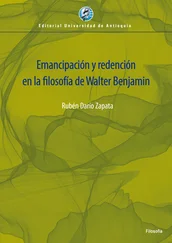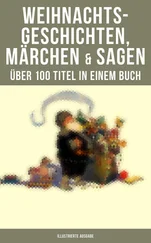As successful as this extraordinary man was all over Europe with his various schemes — which these days couldn’t get him from Magdeburg to Berlin — he occasionally ran into people who were not so easily fooled. And I don’t mean the physicians, who, wherever he showed up, would vigorously hound him, not so much because they knew he was a fake, but out of professional jealousy. Cagliostro operated according to an old charlatan’s trick; that is, wherever he settled for a while, he made sure it was known that he would treat the poor for free. And he kept his promise without fail. But on the sly he let on to the many genteel people who also sought his medical help just how impoverished he was by his selfless philanthropy: the prosperous and the high-born were positively honored when he accepted their gifts. When I speak of people who could see through him, I don’t mean just the doctors or the countless esteemed scientists and philosophers he encountered in his life who saw through his tricks. No, in order to speak frankly of Cagliostro, and wholly without reservation, it took a very pragmatic man, and it’s surely no accident that one of the most hostile, but also sharpest and most insightful portraits that we have of Cagliostro’s appearance and demeanor comes from a well-traveled salesman:
I’ve never seen such a shameless, pushy, self-important charlatan. He’s a short, plump, extremely broad-shouldered, round-headed fellow with black hair, a neck that’s fat and stiff, a thick forehead, bold and finely curved eyebrows, black, glowing, milky and constantly rolling eyes, a somewhat bent, finely curved and broad nose, round, thick, disjointed lips, a strong, round, protruding chin, a round, steely jaw: an auburn-skinned thoroughbred with a forceful and resounding voice. He is the miracle man, the spirit conjurer, the humanitarian doctor and helper who has lived lavishly in these parts for many years without anyone ever knowing where he gets his money. One cannot help but wish that all the transfixed adulators who surround him could witness a man take the trouble to adopt the same shameless character with him and to treat him as despicably as he does others; they would soon perceive what a miserable creature the empty braggart really is, as he has neither the natural gifts nor the education to hold his own against such a man for even a few minutes. And of course the man would have to be physically strong, in case it should be necessary to suspend the monstrous knave out the window with one hand and hear his final confession before he plummets to the ground. 1
You see that this honest salesman does not mince his words. But he’s taking it a bit too far; for it’s no accident that during the first forty years of his life Cagliostro never met his match. There has been a great deal of speculation as to the cause of this superiority. Many believe it was the power of his gaze; no one he looked at could resist it. And there’s also the fact that people back then were fundamentally hungry for such experiences. The more they distanced themselves from the Church, the clergy and all the rest, the more interested they were in any form of natural magic power, which in those days was thought to derive from a so-called magnetism found in people, and even more in animals. And what Cagliostro lacked in knowledge and education, he made up for with an exceptional knack for the theatrical. Hearing a description of just one of his lectures, delivered in all the cities he visited, is enough to make us understand the huge audiences he attracted.
In an almost pitch-black hall with walls covered in black velvet, he stood on a type of throne under a brocade canopy, wearing a black robe and a black hat with an enormous brim. Before stepping onto the dais, however, he strode through the so-called Street of Steel, a corridor created by two rows of his most distinguished followers, crossing their raised swords over the central aisle. The candles, which only dimly lit the room, stood on candelabras in groups of seven or nine — numbers to which Cagliostro attached particular significance. Then there was the smell of incense wafting from copper vessels, and the play of lights in a large water-filled carafe from which Cagliostro himself foretold the future, or where he delivered prophecies through a child. The lectures themselves began with him producing an esoteric parchment roll from which he read off a hodgepodge of incantations, ways of turning coarse cloths into silk, methods for transforming small gems into jewels the size of a hen’s egg, and so forth.
You might be wondering, what did Cagliostro want from all this? It is unlikely that someone who merely wanted to live the good life, to eat and drink well, would be able to muster the power and imagination to captivate Europe for twenty years with his fabulous inventions. Cagliostro attached at least as much importance to the imaginary eminence of the Freemasons and to power as he did to money. But that’s not all. No man can live for decades under the spell of fantastical ideas, holding forth about eternal life, the philosopher’s stone, the seventh book of Moses, and other kindred secrets that he claimed to have discovered, without believing them at least to some degree himself. Or, better put: Cagliostro certainly didn’t believe what he told people, but you can be sure that he believed that his power to make his fantastical lies seem credible was in reality worth as much as the philosopher’s stone, eternal life, and the seventh book of Moses put together. And that’s the crux at which his lies contain a kernel of truth. Cagliostro’s enormous strength actually derived from his belief in himself, his belief in his powers of persuasion, his imagination, his knowledge of human nature. This faith in himself must have grown so strong that it became something like a secret religion, quite different from the one he taught his students.
This is precisely what Goethe found so very interesting about the man; as you have learned in school or soon will, he wrote a play about him, Der Großkophta [The Grand Cophta]. But what you probably haven’t heard is that Goethe himself once played the role of Cagliostro, and not for the public, but for Cagliostro’s family. In his Italian Journey he recounts how he was sitting in a tavern in Palermo when the conversation turned to Cagliostro and his poor relatives; how he, Goethe, expressed his wish to meet the family of this extraordinary man; how this proved difficult and, indeed, only possible if Goethe pretended to have seen Cagliostro himself and to be carrying greetings from him to his loved ones; how this encounter awakened great hope in the family, causing Goethe to reproach himself for his little game; and how finally, to alleviate his bad conscience, after returning to Weimar, he sent a large sum of money to the poor family, which everyone believed to have been a gift from Cagliostro. 2
You will notice that I have not told you much about Cagliostro’s actual life. And this is how I’d like it to remain, because every single one of his stops involves so many entanglements that telling his life story would take a great tome. In any case, his life ended like the jug of the story, which went to the well so often that it broke. After thirty years Cagliostro had reached the point that wherever he went, old and very unpleasant stories lay dormant, waiting only for his arrival to be reawakened on people’s lips. His stops grew shorter and shorter, and by the end he was constantly on the run. A respected newspaper, The European Courier, played an important and curious role in this decline, as I will now relate in closing. 3Among the multifarious medicinal and chemical absurdities that Cagliostro sought to promote was the story of the pig. He wrote somewhere that in Medina, where famously he claimed to be from, the people got rid of the lions, tigers, and leopards by fattening up pigs with arsenic and then shooing them into the woods where they were devoured by the wild animals, who died from the poison. Morande, the publisher of The European Courier, took up the matter and ridiculed it. This infuriated Cagliostro, who then presented Morande with a peculiar challenge. On September 3, 1786, he printed a leaflet inviting Morande to a feast on November 9, where together they would eat a piglet fed as they were in Medina, while betting 5,000 guilders that Morande would die from it, but he himself would remain healthy. Now, it’s quite a lot to propose to someone that he will die and on top of that lose 5,000 guilders on a bet. As you can imagine, Morande had no interest in taking up the offer. Instead he compiled a collection of disparaging facts and rumors about Cagliostro and published it in his European Courier . In the end Cagliostro fled to Rome, although because of his connection to the Freemasons, he couldn’t have chosen a place where he would have felt less safe. His friends were quick to inform him of the Inquisition’s intention to jail him, but Cagliostro was tired and stayed put. In 1789, Pope Pius VI had him arrested and imprisoned in the Castel Sant’Angelo while he was tried by the Inquisition. Most of what we know today about Cagliostro derives from this trial, which seems to be have been conducted with great accuracy but also with astounding leniency. Nevertheless, it concluded unsurprisingly with a death sentence for heresy. In 1791, however, the pope reprieved Cagliostro and his sentence was commuted to life imprisonment. A few years later, although it’s unclear exactly when, he died in the San Leo prison in Urbino.
Читать дальше












